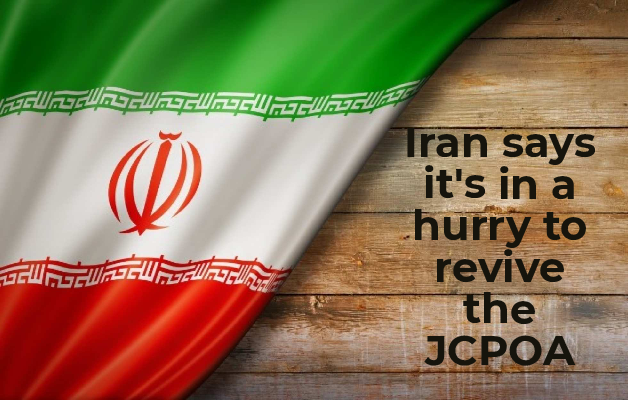The price of
crude oil that fell yesterday in the aftermath of the Russian announcement of
troops going back to their barracks from the border with Ukraine, has started
its upward trend again, when the West expressed scepticism over the move.
As of 14:00 GMT,
the price of WTI and Brent were at $93.75 and $95.07 respectively in the crude
oil markets.
Despite the
Western reservations, President Putin of Russia keeps insisting that he does
not want yet another war in Europe; the Kremlin termed the issue as hysteria
manufactured by the Western media and politicians.
The manner,
in which crude oil price fluctuated within 24 hours, clearly reflects the genuine
anxiety felt by investors and analysts over a possible military conflict, even
if it is not a full-scale-war and the inevitable cascading effect encompassing
the crude oil markets.
There are
already concerns about the inability of the producers to meet the demand; it
goes without saying the impact in these circumstances, in the event of a key
player in the crude oil realm getting involved in a war, perhaps a protracted
one.
Many nations
in the Western Europe are dependent on the supply of Russian gas and they are
not in a position to swap the suppliers around on a whim, caving into political
pressure.
Qatar, the
world’s largest LNG producer in the world up until recently, has already said that
it cannot become a substitute for Russian gas, if a military conflict breaks
out between Ukraine and Russia.
Fortunately,
European gas importers can breathe a collective sigh of relief as the winter
season is slowly coming to an end, as the risk of dreaded winter fuel crisis is
clearly behind them.
Having felt
the pinch over the rising cost of living, President Biden has taken up the
issue of crude oil output by the kingdom with the King of Saudi Arabia recently
– among many other things.
The general
understanding in the OPEC+ over the rising crude oil prices is that it is
something exacerbated by geopolitical tensions, not necessarily by the reluctance
on the part of the producers to pump more oil into the markets.
It was
reiterated last week none other than the Energy Minister of the UAE, Suhail
al-Mazrouei. He blamed it on the geopolitical tensions rather than the
fundamentals.
Fatih Birol,
the executive director of the IEA, International Energy Agency, however, does
not see it that way; he wants the OPEC+ to close the gap between the amount of
oil pledge to produce and the actual output.
Usually,
producers waste no time when the IEA blames the current supply issues on the former:
after all, it was the IEA that discouraged the investments in the fossil fuels in
order to accelerate the growth in the renewables; producers in turn implicitly
accuse, those who advocated deviating from the fossil fuels, of committing a
grave error.
In another
encouraging development, Amir Abdollahian, the Iranian Foreign Minister, said on
Tuesday that ‘Iran is in a hurry to reach a good agreement in Vienna talks,’ displaying
a marked deviation from the rigid stance it maintained since the new rounds of
talks began.
The data
from the OPEC+, meanwhile, shows that the Iranian crude oil production has gone
up by 21% from December 2022.
When you
connect the dots, it is clear that Iran wants to sell its most valuable
commodity to the world, when there is a great opportunity to cash in on the
current high crude oil prices.
In addition,
the growing closeness among the Sunni Arab nations along with Israel may have
played its role too for Iran to take a more pragmatic approach; Turkey is the
latest country that got attracted to the alliance in the region.
Iran has
reached out to the Europeans too in order to repair the badly damaged
relationships. The latest conversation between the Iranian Foreign Minister and
his British counterpart is a case in point.
In light of
these developments, the US may show some flexibility too in reviving the JCPOA,
2015 Iranian nuclear deal: on one hand, it will ease the pressure on the US
consumers when Iran becomes a major player in the crude oil markets once again;
on the other hand, when Iran exercises flexibility in the negotiations, it makes
perfect sense not to let it slip away in the current geopolitical tensions.







